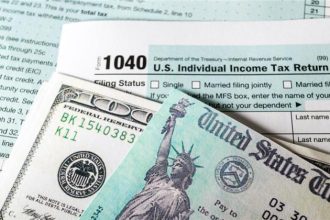Credit Sesame discusses the complexities of the U.S. economy booming amid mixed signals.
Economic reports often present a mixed bag of news, with both positive and negative trends. However, the current economic landscape is marked by particularly stark contrasts. While some sectors are thriving and experiencing significant growth, others are struggling to stay afloat. Your personal financial situation and how you manage credit can significantly influence your perception of whether the economy is booming or stalling.
Is the economy booming?
There is plenty of data that paints a positive picture of the economy. Here are some examples:
- The job market just logged its 46th straight month of net employment gains. That’s nearly four years of consistent job growth. During that time, the economy has added a net total of over 16 million jobs.
- Consumer confidence is looking up. The Conference Board’s Consumer Confidence Index rose by 9.6% in October. That was the strongest monthly gain in over three years.
- The Gross Domestic Product, a comprehensive measure of economic activity, has grown for ten straight calendar quarters and 16 of the last 17.
- Even inflation is increasingly looking like old news. Over the past 12 months, inflation has been just 2.4%, and annual inflation has been running below its long-term average for 16 months.
All of the above are positive economic indicators signaling economic success.
Is the economy stalling?
With so many good things happening, why are so many people down on the economy? There’s another side to the figures:
- Consumer debt has been rising unabated since mid-2020. The fastest-growing type of debt over the past few years has been credit card debt, which is also especially expensive.
- Interest rates remain high. The average rate charged on credit card balances recently rose above 23% for the first time on record.
- Americans are having trouble keeping up with rising debt balances and high interest rates. The percentage of credit card balances with payments 90 days or more overdue is now the highest since early 2012.
- While consumer confidence rose last month, overall, it’s been up and down. It has remained within the same narrow range for the past two years.
- October 2024’s job gains were the weakest in the 46-month winning streak of rising employment. With a net employment increase of just 12,000, the job market barely continued that streak.
So, while the economy has its bright spots, it’s not all sunshine and roses.
A tale of two economies
The positive and the negative sides of the economy are true but for different people. Consumer perspective depends greatly on whether you’re primarily a saver or a debtor. Many people have both savings and debt. What matters is whether one substantially exceeds the other.
U.S. household wealth reached a record high in the second quarter of 2024, largely driven by surges in real estate and stock market investments. However, this wealth growth has not been universally shared. Those without assets like property or stocks are excluded from the benefits of this upswing. For individuals burdened with debt, rising interest rates have compounded their financial struggles, pushing their net worth deeper into negative territory. As debt levels increase and borrowing costs rise, these households are facing even greater economic challenge
Another way of looking at this divide is in terms of credit scores. People with prime credit scores (between 661 and 720) have generally kept up with credit payments. In this group, the rate of serious delinquencies 90 days or more overdue on credit card payments is just 0.20% (one in every 500 people). For people with credit scores above 720, the serious delinquency rate is close to 0%.
That low serious delinquency rate contrasts sharply with the problems subprime credit card customers are having. Subprime customers are those with credit scores of 600 or lower. The serious delinquency rate for this group is 19.7%. That equates to nearly one out of every 5 customers.
It seems having trouble keeping up with credit card bills is a pretty rare problem for people with good credit. However, it is very common among people with bad credit. That can lead to two distinctly different views of the economy.
Which path will the Fed follow?
The current economic landscape challenges the Federal Reserve as it weighs how quickly to reduce interest rates. While the Fed has signaled its intention to implement a series of rate cuts over the next few years, the pace of these cuts is still up for debate.
As long as the economy grows, the Fed has room to adopt a more gradual approach to rate cuts. A slower rate reduction would help mitigate the risk of a resurgence in inflation. This careful approach balances stimulating growth while maintaining control over price stability.
However, if economic conditions show signs of a recession, the Fed would likely adopt a more aggressive stance, cutting rates more quickly to provide immediate stimulus. This approach, though, comes with the risk of reigniting inflation, which could undermine longer-term stability.
Ultimately, the Fed’s decision will depend on which aspect of the economy it believes is most dominant at the time—the areas showing resilience or those signaling potential decline. The Fed’s challenge is to find the right balance between fostering growth and avoiding the pitfalls of unchecked inflation.
If you enjoyed Is the U.S. economy booming or stalling? you may like,
Disclaimer: The article and information provided here are for informational purposes only and are not intended as a substitute for professional advice.
Read the full article here
















